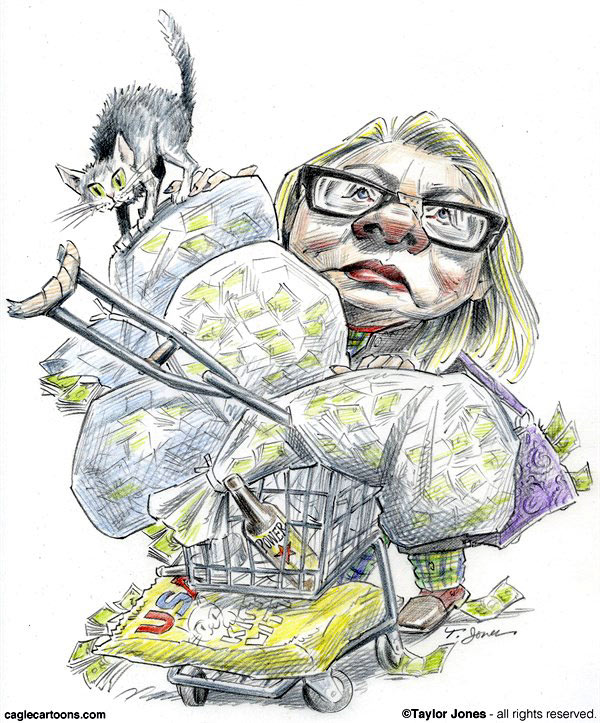
"Doug is very transactional."
This was an apt description of
The quote comes from an unnamed former
Band, who touts himself as the founder of "
Band recognized what throne-sniffers have known for millennia: Proximity to power can be lucrative.
When Clinton's reputation was in tatters at the end of his presidency, thanks mostly to the Monica Lewinsky scandal and Clinton's outrageous midnight pardons of felons and friends, Band turned down a job at
It was Band's idea to launch the Clinton Global Initiative, an amorphous pseudo-charity adjunct to the
The appeal for Clinton was obvious. He loves talking. He loves riffing on wonky solutions -- real and alleged -- to various public-policy problems. He also adores hobnobbing with the rich and famous and being praised by them. And he has a deep-seated need to be relevant.
Band recognized that all of these needs could be monetized, and that he could get his cut. In the memo released by WikiLeaks, he explained how he did it. If you wanted a speech, an endorsement, a meeting with the big guy, you had to go through the little guy and pay the appropriate tribute, not just to Clinton but often to the foundation as well.
In 2011, along with
MacGillis has too much credulity on one score.
"He doesn't care about money," a Clinton friend told MacGillis. "He doesn't even have a credit card. When he wants to get something he says, 'Wow, I love that,' and whoever he's with says, 'Here it is!'"
This isn't proof Clinton doesn't care about money so much as it's proof he takes it for granted. It's a pristine example of Clinton's aristocratic entitlement. In medieval societies, the nobility looked down on money not because they didn't care about being rich, but because they had little people to sweat the details.
For years I've been making the point that the
Charity was the price the Clintons had to pay -- to get
But there was a second purpose.
"Clinton Inc." is the wrong term. House Clinton -- like House Lannister in "Game of Thrones" -- is closer to the mark.
The Clintons always wanted to get back into power, and for a self-styled royal family in exile, the foundation served as a brilliant way to keep all of the retainers, courtiers and henchmen employed -- and the donors engaged -- as they plotted their return. And, sadly, it appears to have worked.
Comment by clicking here.
Jonah Goldberg is a fellow at the American Enterprise Institute and editor-at-large of National Review Online.


 Contact The Editor
Contact The Editor
 Articles By This Author
Articles By This Author